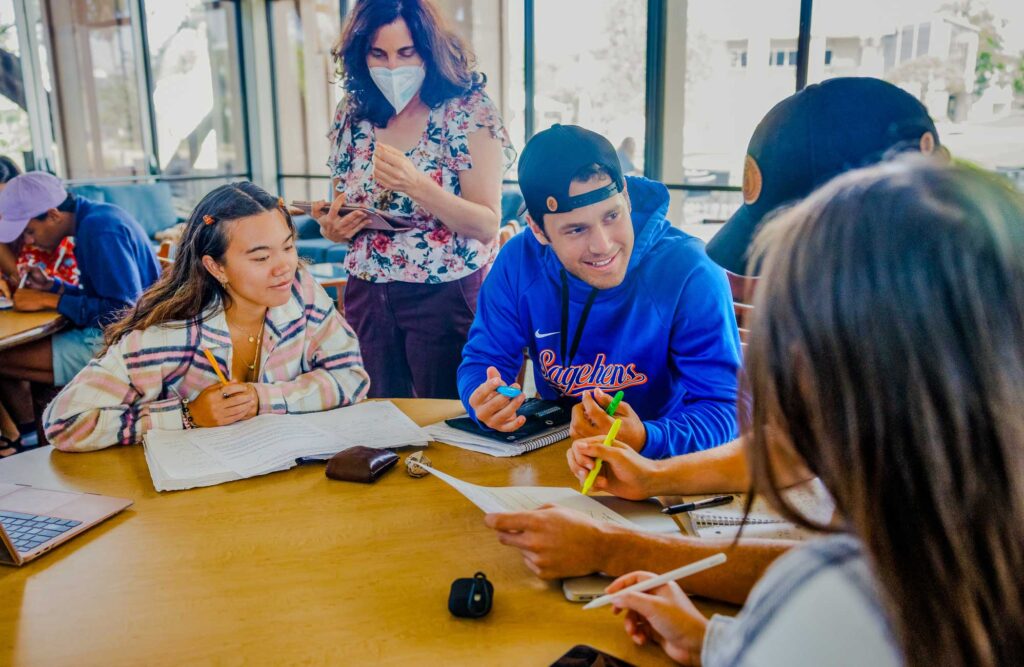
What if you could take a class that experiments with science writing using ChatGPT? Or a class that explores how Wicked and Hamilton shape political themes? Or a class that asks what makes us human? Pitzer College’s first-year seminars (FYS) introduce students to a multitude of topics that encourage critical thinking and push academic writing beyond the five-paragraph outline.
All Pitzer students take a first-year seminar, which includes small-group discussions and writing about different subjects. The seminar is the first taste of Pitzer’s academic life. This fall’s FYS slate draws from many disciplines to offer fresh takes on politics, history, geometry, science, art, and more.
Consider the following sample of this fall’s FYS:
The Room Where It Happens
This course uses musical theater to explore themes in political science including power, protest, freedom, identity, representation, and governmental design. What makes a composition, performance, or production “political”? How are music and theater used to mobilize or marginalize?
Al Chatbots in Science
Students learn how to design effective prompts by critically engaging in prompt engineering exercises to develop their science-writing skills while gaining hands-on experience with chatbots to generate different types of science writing.
What is Human?
Students explore how people in other eras defined themselves and how those distinctions are being blurred by modern technology and biological research. Do computers have consciousness? Do clones have souls? How do we determine human nature?
Political Geometry
This course explores how quantitative evidence has been acquired and analyzed in the geometry of borders—including issues such as redistricting and gerrymandering. The course investigates political geometry with an emphasis on how the geometry of borders impacts day-to-day living and the political climate of society locally and globally.
Unsettling Histories
This course centers on building a personal Family Place Portfolio. Students research their family history and the processes of settler colonialism and Indigenous presence in relation to their hometown or another place.
La Familia
This seminar explores commonalities and differences across conceptions of “la familia” (the family) for Latinx people living in the U.S. Students read accounts of the journeys that Latinx families have taken, resulting in the development of transnational ties and evolving identities.
Climate Crisis and Colonialism
This course explores how the exploitative practices of colonialism affected biodiversity, resulting in this overwhelming crisis for humans. Students discuss how we can learn from these historical exploitations to find means for a sustainable future.
Sovereignties in the Global South
Drawing from non-sovereignty (as defined in anthropology) and decolonial studies, this course looks at how nations of the Global South imagine new forms of sovereignty or liberation outside political independence that take the form of social solidarity networks.
Observing Color
Through this seminar students study the basic science of how we perceive color, the language of basic design principles, and how our observation of color influences our experiences outside of art. Students make oral presentations and solve color problems using art media and design.
Octavia E. Butler
Octavia Estelle Butler invites readers of her fiction to engage in critical questions about social justice. Through this course, students read the complete oeuvre of Butler. Students research the historical and global-local contexts, Afrofuturism, and Butler’s artistic vision.
Read the full course descriptions for all the first-year seminars this fall.